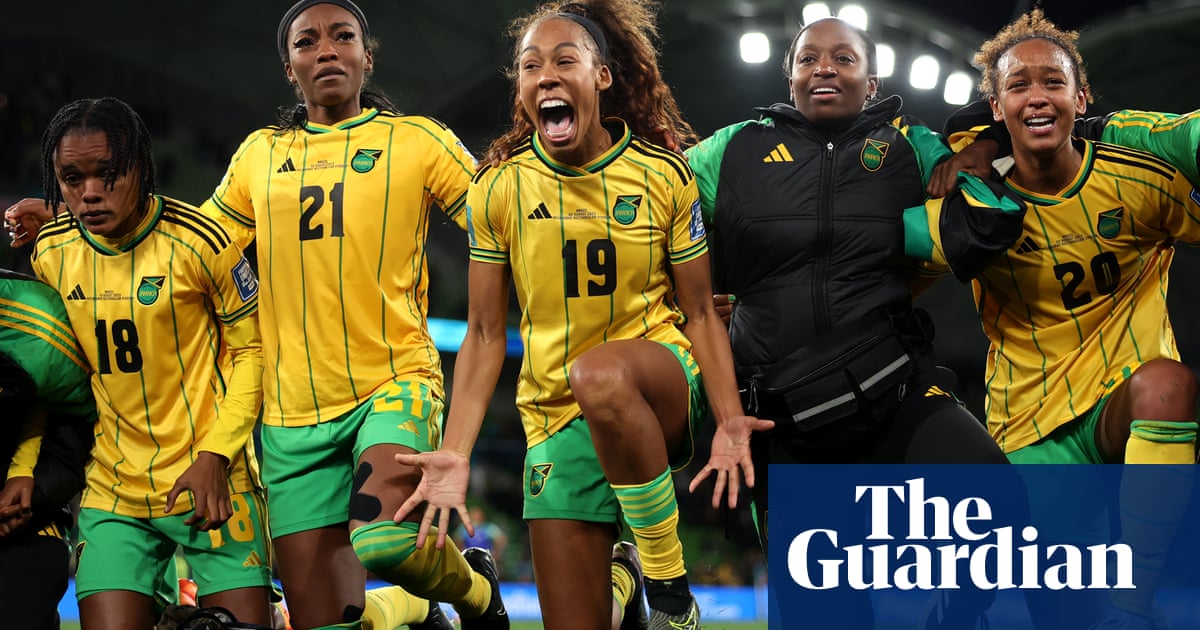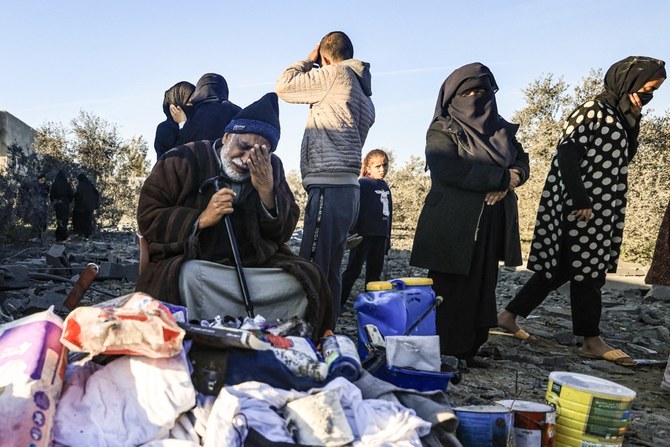
When Jamaica knocked football superpower Brazil out of the Women’s World Cup last week it was not even 7am in Kingston.
But the early hour was not enough to dampen the celebrations as the team – ranked 43rd in the world – became the first English-speaking Caribbean country to have made it to the knockout round.
Now, as the Reggae Girlz prepare to face Colombia in their first-ever match in the knockout stage, football fans on the island are hoping that the team – which has already overcome underfunding, indifference and sexual abuse scandals – will be able to keep up the momentum, both on and off the pitch.
Iyana Campbell, 18, originally from Spanish Town, said the team’s progress made her “even more proud to be Jamaican”.
Campbell, who is studying at Lamar Community College in Colorado, said the Reggae Girlz success was an inspiration to upcoming Jamaican female footballers like her.
“Knowing that the Girlz had to go out there and show up and they did just that, it now gives me a drive to just continue doing the things I’m doing now to be like them or even better in the future.”
Lucille Hamilton, mother of striker Trudi Carter, who provided the assist in Jamaica’s 1-0 first-round victory over Panama, said she has been waking up as early as 4 o’clock to watch the games.
Positioning the television outside, the family and neighbours have gathered in a festive atmosphere to cheer on the team.
Hamilton said that Carter, 28, has been passionate about football since she was seven years old, going toe to toe with boys in the gritty communities of Jones Town and Trench Town.
“Even when she started to play at Jones Town, she came to me saying that one of her friends was selling football boots and she saved her lunch money to buy her first boots,” Hamilton reminisced.
Jamaica is now the only team from the Confederation of North, Central America and Caribbean Association Football left in the World Cup.
The national celebration is as justified as it was unexpected.
After all, this was a team that in 2010 was disbanded (along with the women’s Olympic programme) due to a lack of funding. The team was resurrected with the support of Cedella Marley, the daughter of the late Bob Marley, but like most women’s sport on the island, it suffers from chronic underinvestment.
Meanwhile, coach Hubert Busby was suspended indefinitely in November 2021 after allegations emerged that he solicited sex from a female footballer at Canadian club Vancouver Whitecaps a decade earlier. (Busby denies the allegations.) His replacement Vinimore Blaine was ousted in a team mutiny after the players expressed dissatisfaction with his leadership.
“We suffer from a lack of funding and we have a gender bias regarding sponsorship where sports is concerned in this country,” said Charles Edwards, who coached the national team from 2007 to 2010.”
“It’s very difficult here for us. Teams are underpaid. We don’t have gate receipts because we have to leave gates open just to get people to come in and watch games,” Edwards said.
The Jamaica Football Federation (JFF) general secretary, Dennis Chung, said that the organisation has recently shelled out more funding for the Girlz than the Boyz, particularly because of the World Cup campaign.
“Since about October 2022, we have spent almost $2m on preparation for the girls, and they have had more camps than the Boyz,” he said.
Striker Khadija “Bunny” Shaw, who scored heavily for Manchester City last season, sparked a social-media squabble when she said that Girlz had been forced to rely on crowdfunding to finance their World Cup campaign.
The Jamaican government countered that claim, saying it contributes $19,000 a month into the women’s team and also contributed $129,000 for the World Cup campaign.
Chung says that the federation did not sanction the $50,000 GoFundMe set up by a player’s mum, adding that the JFF finances travel, accommodation, meals, medical supplies, per diem, baggage, petty cash for incidentals, among other expenses.
Whatever happens with Tuesday’s Colombia match, Monique Pryce, a 32-year-old former national footballer, said the team’s achievement will inspire a new generation of women and girls
“It’s very influential, especially to the young girls who can go to college overseas and get scholarships and maybe get on a team, and to support themselves,” said Pryce.
Edwards said he hoped the team’s achievements could give women’s football a real boost for the future, especially at the grassroots level.
“Momentum is something that will die if you don’t put energy and force behind it. I am just hopeful they will catch this momentum. … That would also assist a lot of the local bred players to have an opportunity to knock on the door to get into the national squad,” Edwards said.












